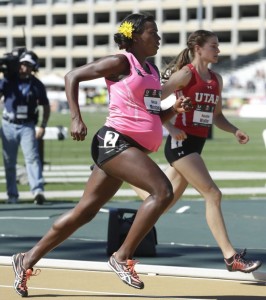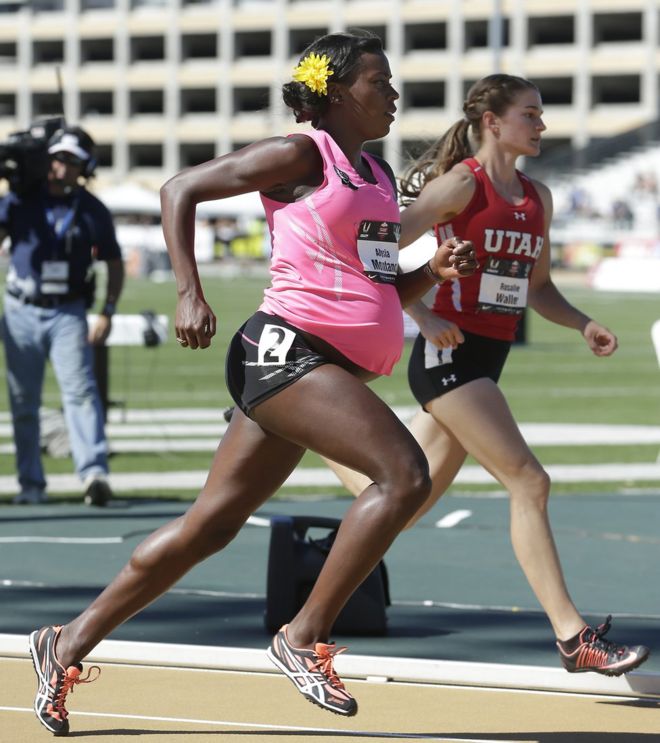
FabMoms extensively propogates “exercise as medicine” – even more so during pregnancy, owing to several health benefits for both mother and child. One usually needs to be careful and take up supervised exercises especially when the mother has not been very active before pregnancy. But then there are seasoned athletes who will goto the lengths to participate in competitive sports and think it’s ok to run even when you are pregnant.
In June 2014, Us media ran remarkable pictures of Alysia Montano competing in the 800m quarterfinals of the US track and field championships (see the picture at the top of this article). In the UK, the media also regularly feature stories about heavily pregnant women taking part in races.
Historically, advice given to pregnant women relating to exercise has been speculative. For a long time exercise was simply thought to conflict with a woman’s reproductive ability. The roots of this feeling were unscientific, and more to do with gender roles than with the health of mother or baby.
More recent studies indicate that elite athletes who train during and after pregnancy may see a 5-10% increase in their maximal oxygen consumption in the months after giving birth, though this was not observed in recreational athletes.
The new research fits with current advice for the general public. The American College of Obstetricians and Gynecologists recommends that pregnant women participate in aerobic and strength exercises, which may reduce the risk of diabetes and improve mental well-being. However, before women embark on an exercise programme, they should seek medical advice.
In the UK, the NHS also advises women to continue exercising through pregnancy, though it says they shouldn’t work out so strenuously that they can’t hold a conversation at the same time.
Prof Kari Bo (from the Norwegian School of Sports Sciences) has a simple message for pregnant women athletes: listen to your body. If you do something that feels wrong, it’s probably best to stop.
What counts as “strenuous exercise” clearly depends on how fit you are and how much sport you already do. This invariably means to any of us — to maintain the pre-pregnancy level of fitness during pregnancy until whenever the body allows.
William Kremer from BBC World Services reports of various athletes participating in sports when pregnant. Seven or eight weeks into her first pregnancy, the Swedish athlete Eva Nystrom won the Swedish national duathlon – a 10km run, followed by 40km cycle race and another 5km run.
So how safe is it to train and compete while pregnant? As part of its commitment to women’s sport, the International Olympic Committee (IOC) recently called a group of experts to a meeting in Lausanne and asked them to write a report. Their huge review is being published in five parts in the British Journal of Sports Medicine. Despite the complexity of the material, the lead author’s message is simple – ” Do stay active and Listen to your body. ”
FabMoms propagates Fitness among pregnant women and offers several programs to guide and support you through a healthy and fit pregnancy.
